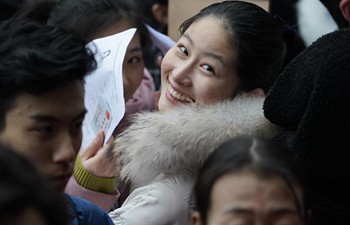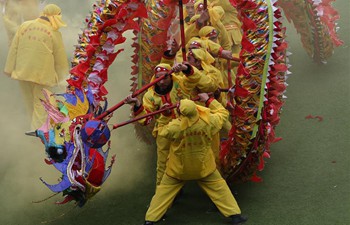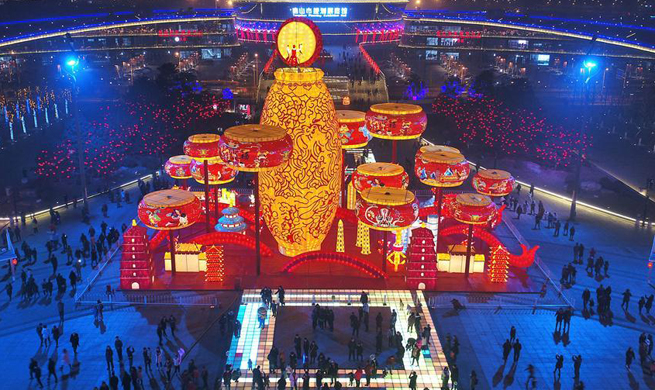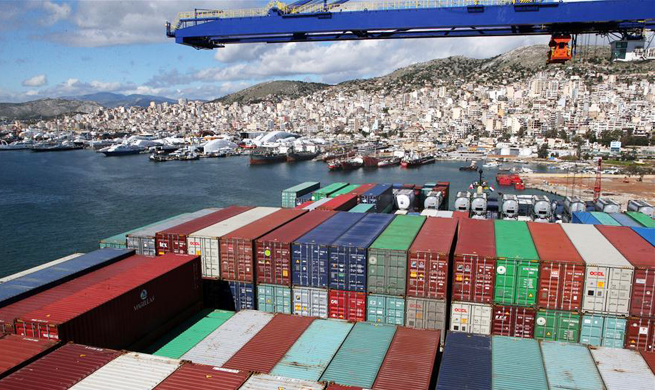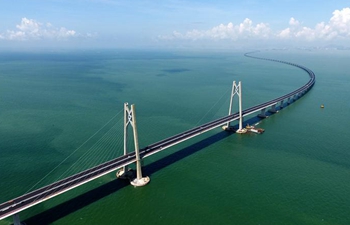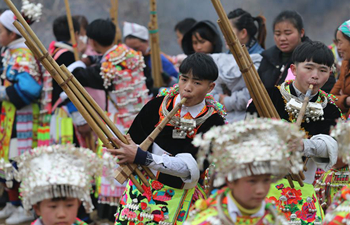UNITED NATIONS, Feb. 27 (Xinhua) -- The UN special envoy for Yemen on Tuesday called for the political will of the decision-makers in Yemen to end the war, which has resulted in the world's worst humanitarian crisis.
"Only Yemeni decision-makers are able to stop the war and the bloodshed," Ismail Ould Cheikh Ahmed, the UN secretary-general's special envoy for Yemen, told the Security Council.
He said the parties backed away from a peace proposal at the last minute due to lack of political will.
"I would like to announce, for the first time, that we were about to reach agreement on a peace proposal developed in consultation with the parties, but they refused to sign in the last minute," said Cheikh Ahmed.
"In the end of the consultations, it became clear that the Houthis were not prepared to make concessions on the proposed security arrangements. This has been a major stumbling block toward reaching a negotiated solution," he said.
Decision-makers in this conflict perceive concessions as weakness and dissent as a threat, he noted.
Regrettably they have consistently taken irresponsible and provocative actions, disregarding the daily suffering of Yemenis, he said.
"We do have a peace roadmap for Yemen. The practical suggestions to launch it and build confidence among the parties have been agreed upon. The only part missing is the commitment of parties to make concessions and give priority to the national interests. This is what makes us doubtful of their real intention to end this war," he added.
He called on the parties to cease hostilities, reactivate negotiations, make the culture of coexistence prevail over the language of war so that Yemen becomes a beacon of light in the Middle East and a model for peace and security.
Cheikh Ahmed was briefing the Security Council for the last time as he is to step down at the end of the month. He will be succeeded by Martin Griffiths of Britain.
Yemen has been in civil war since 2015, pitting Houthi forces loyal to former President Ali Abdullah Saleh and forces loyal to the government of Abdrabbuh Mansur Hadi.
The civil war has taken a heavy toll on the country and deepened the economic and humanitarian crisis, he said. "The parties have continued the destructive pattern of zero-sum politics which has led the country to plunge into more poverty and destruction."
Since 2015, Yemen's economy has shrunk by almost 40 percent. In 2017 alone, the Yemeni riyal lost more than half of its value, said the special envoy.
The decline of the currency and the related sharp price hikes have negatively affected the economy and therefore hampered the delivery of basic supplies.
Currently, 22.2 million Yemenis are in need of some form of humanitarian assistance, compared to 15.9 million in March 2015, he said.
The last two months witnessed a renewed and large-scale escalation of military confrontation in parts of the country and the Houthis continued to fire ballistic missiles into Saudi Arabia, he said.
In December 2017, conflict erupted between Houthi rebels and Saleh's supporters, leading to the killing of Saleh.







